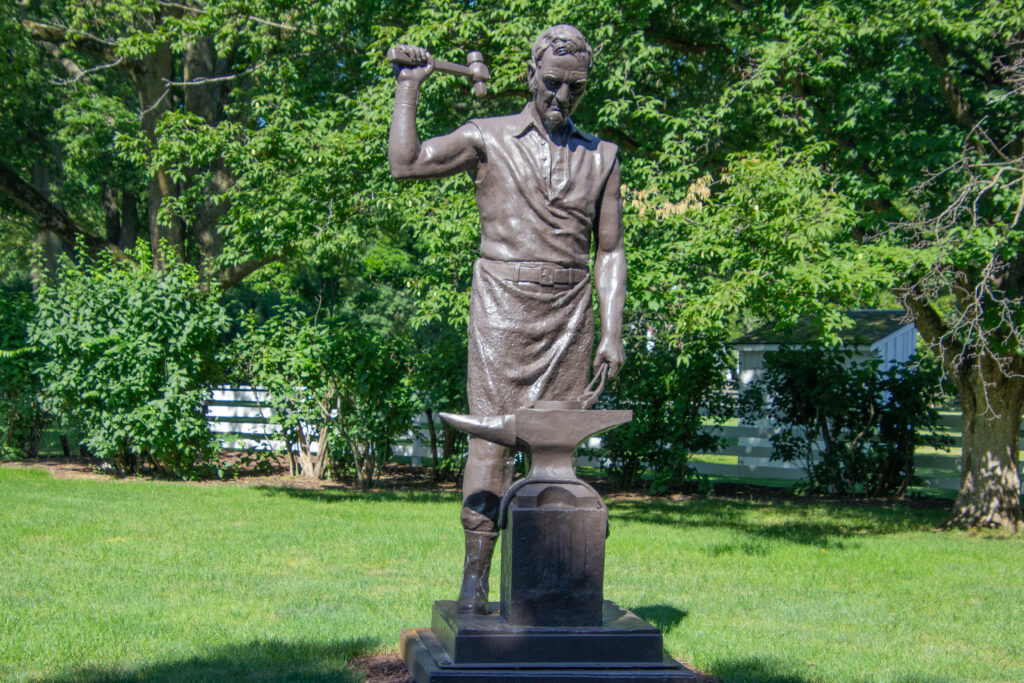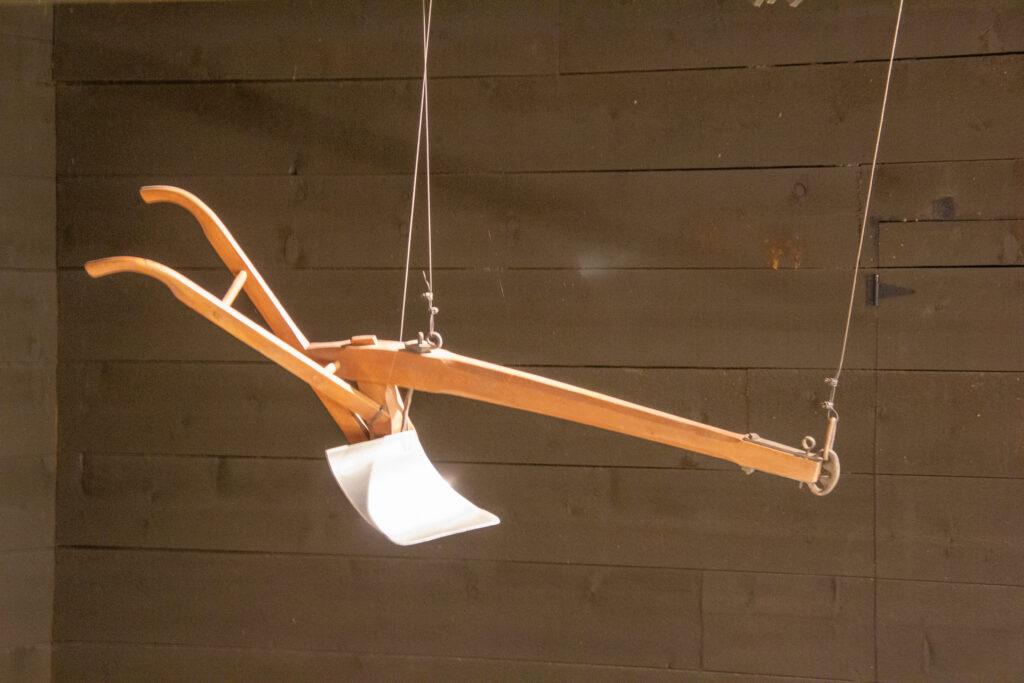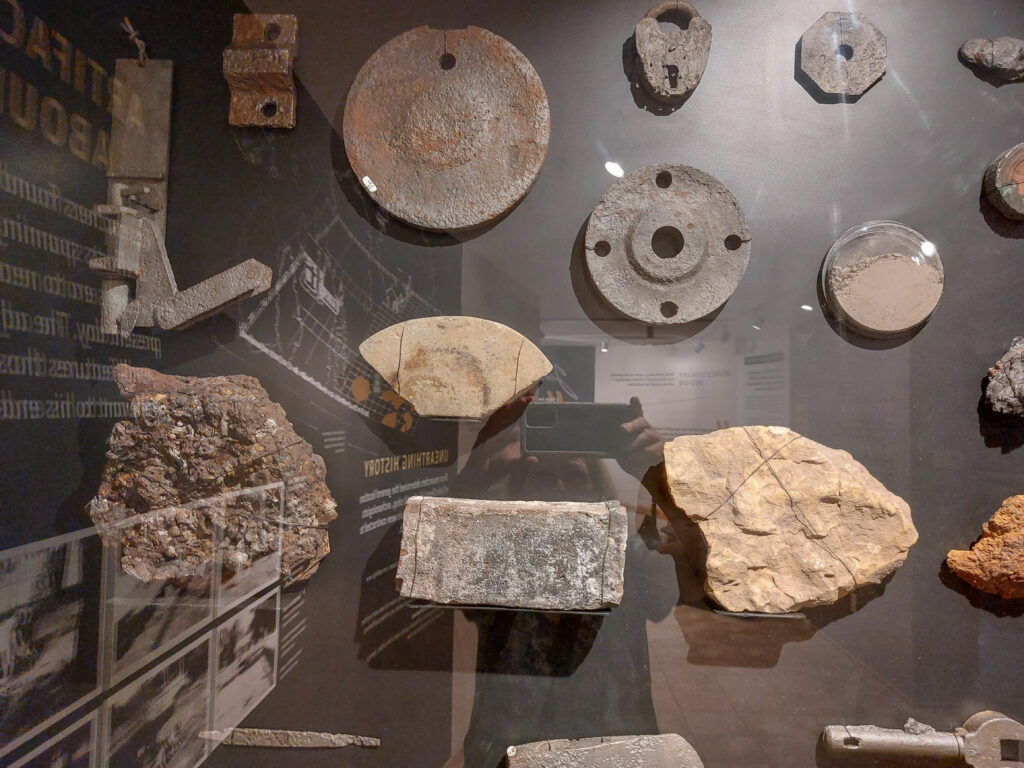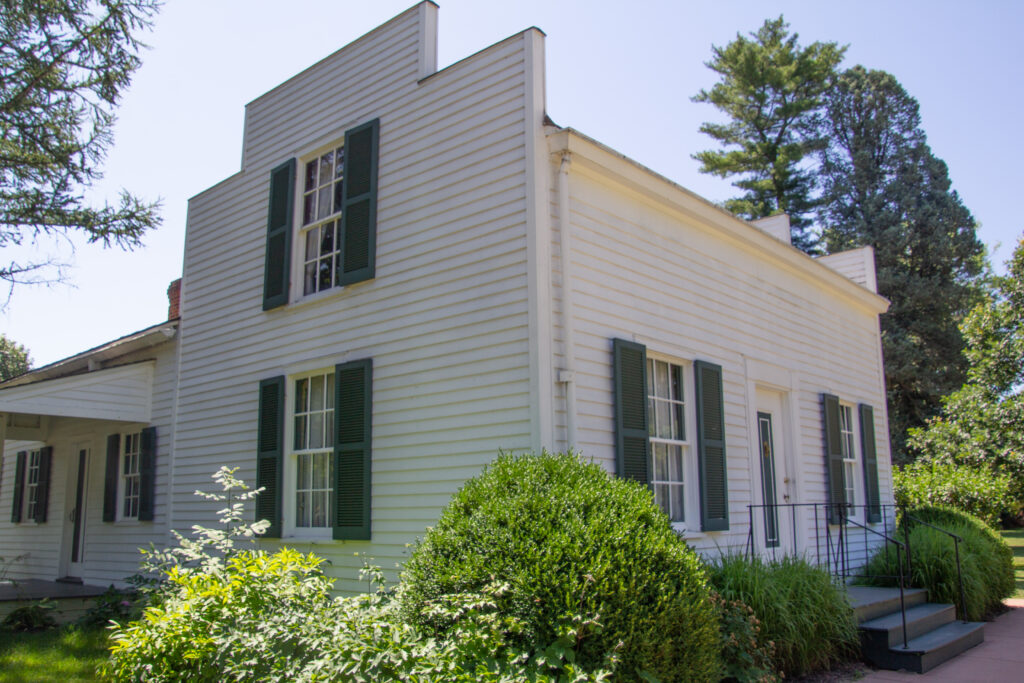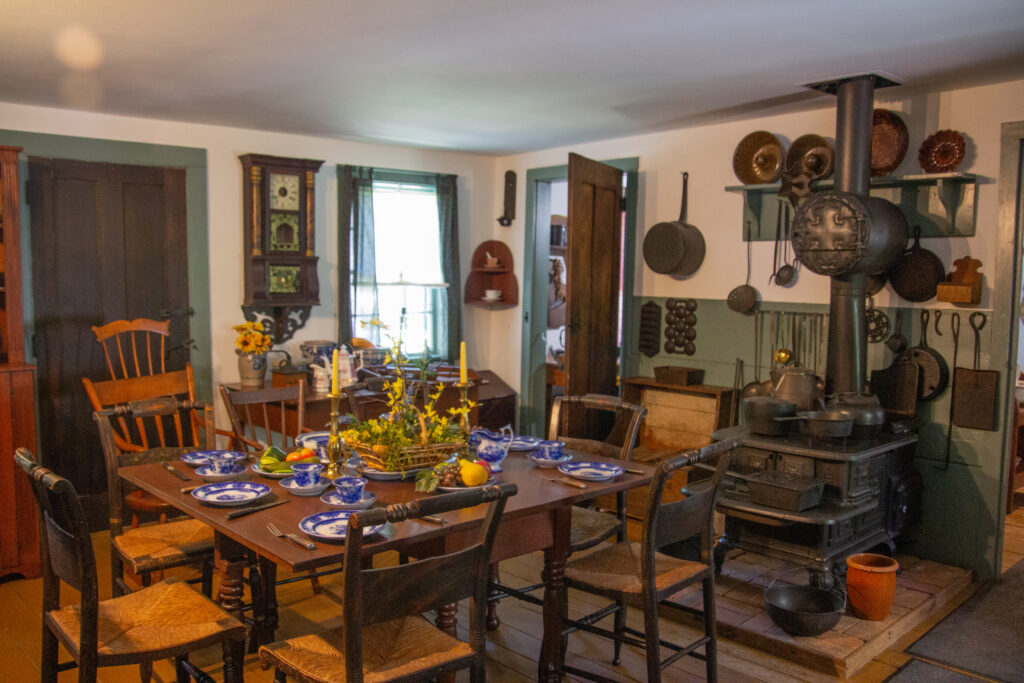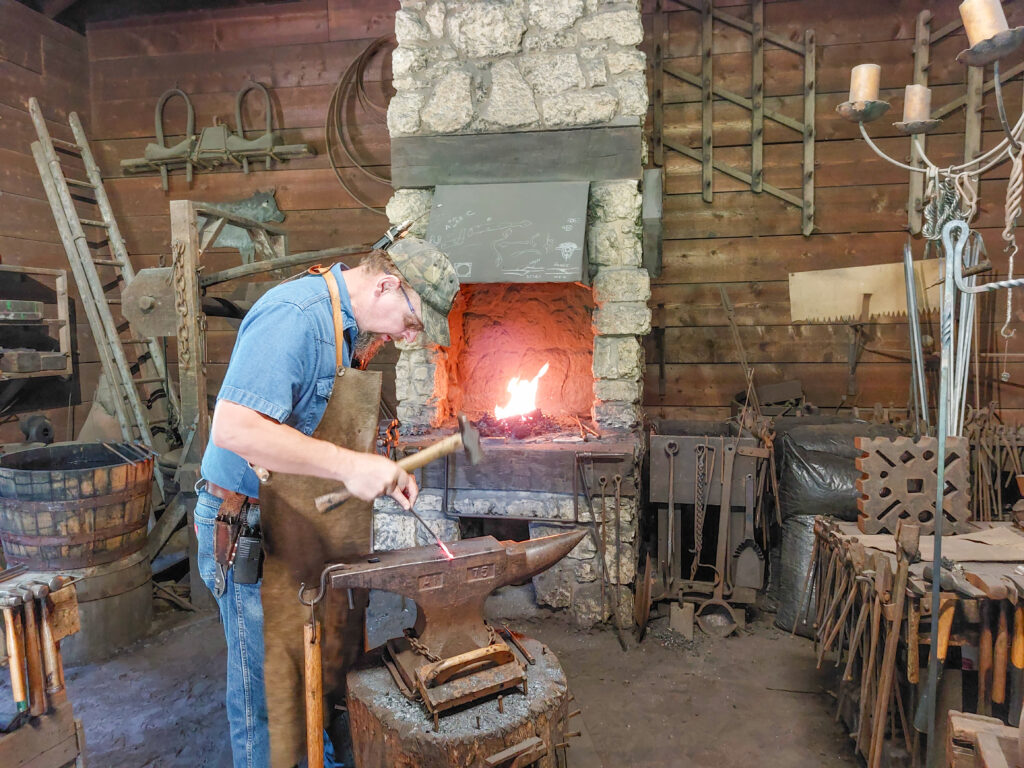You’re probably familiar with John Deere. The name conjures up images of bright green tractors and farm implements. Or maybe the logo of a yellow leaping deer on a green background. The huge company all began with a single, simple plow crafted by John Deere, a blacksmith. The John Deere Historic Site in Grand Detour, Illinois, tells the story of both John Deere the man and John Deere the company.
John Deere, the Blacksmith
Born in Vermont in 1804, John Deere became a blacksmith. But finding himself heavily in debt after his shop burned down twice, he was desperate to find a way to support his pregnant wife and four children.
In the meantime, a fellow Vermonter named Leonard Andrus founded the town of Grand Detour, Illinois. The town included a sawmill and flour mill, along with a few shops. In an effort to get more inhabitants into the town, Andrus returned to Vermont to recruit farmers to the “rich land.”
Three years after the town’s founding, John Deere also headed west to set up shop in Grand Detour. He was the only skilled blacksmith in town.
It wasn’t long before those Vermont farmers became frustrated with the Illinois land. The soil wasn’t at all like the Vermont soil they were used to. They found the Illinois soil was difficult to plow. The sticky, black soil stuck to both wood and cast-iron plows. A farmer had to stop every few feet to scrape it off, wasting valuable time.
John Deere Invents the Steel Plow
One day while John Deere was at a sawmill doing a repair, he noticed a discarded old saw blade. Knowing about the farmers’ dilemma, he had an idea. He cut the teeth off the blade and fashioned it into a plow. Success! The sticky soil slid right off the steel plow. That first year, 1837, Deere made just that one plow, and two the following year. Word spread, and by 1841 he made 75 plows in one year. He was no longer a blacksmith; he was a plow manufacturer.
The Move to Moline, Illinois
With the bigger demand for John Deere plows came the need for more steel. But a cost-effective way to get the steel to Grand Detour was a problem. The Rock River, which ran through Grand Detour, wasn’t navigable, and the railroads had bypassed the town.
So, in 1848, John Deere sold his house and moved his family to Moline, Illinois, located on the Mississippi River. Ten years later he sold the business to his son, Charles. Under Charles’ direction, the company continued to expand. It incorporated in 1868, naming John president. John Deere passed away 18 years later, at age 82.
Today, Deere & Company, still based in Moline, is the world’s largest farm equipment manufacturer in terms of revenue. In 2021, the world-wide company employed over 75,500 people. Quite an accomplishment for a company that began with a single blacksmith and a discarded saw.
An Archeological Dig at the John Deere Historic Site
From 1919 to 1929 John Deere’s granddaughter, Katherine Deere Butterworth, purchased eight lots in Grand Detour, including her grandfather’s home. She sold the property to Deere & Company in 1951. A few years later, the company transferred the property to the John Deere Foundation.
In the 1960s a team of University of Illinois archaeology students conducted a two-year excavation of the original blacksmith shop. Within a year of starting the project, the students unearthed the exact location of the shop.
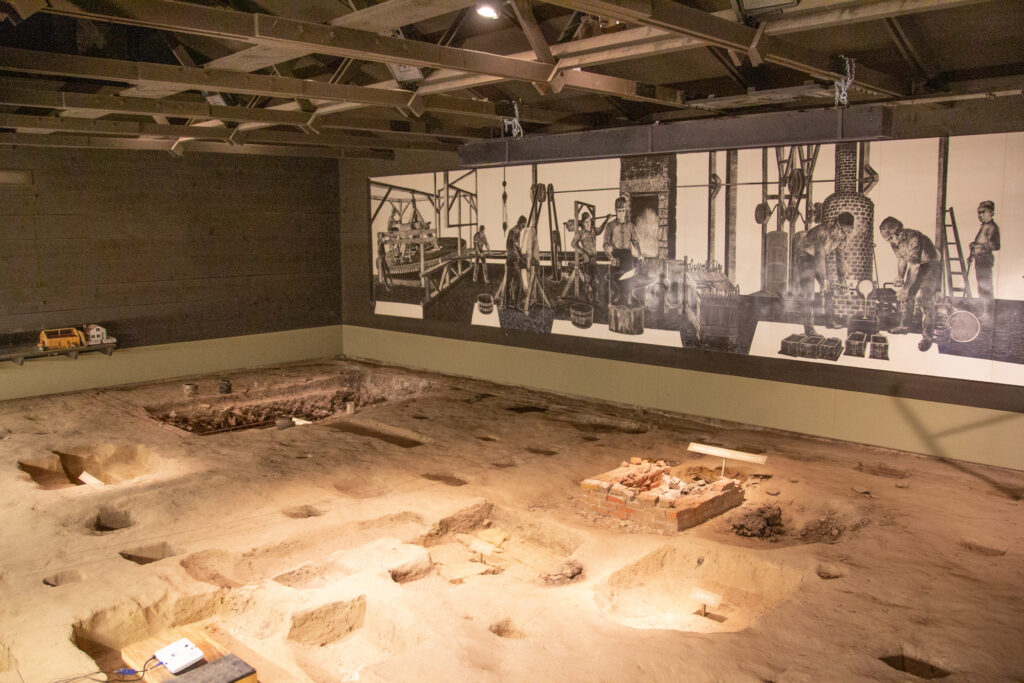
Visiting the John Deere Historic Site
Today a museum stands in place of the original blacksmith shop. Inside, you’ll learn more of the John Deere history and see many artifacts that were uncovered during the archaeological dig.
In addition, you’ll also tour the John Deere home. The contents aren’t original to the Deere Family. However, it’s decorated with period furniture and items much like the Deere family would have used.
Also on the property is a replica of John Deere’s original shop, complete with a blacksmith at work. If you’re lucky, you may get to take home one of the small items he makes.
If You Go…
The John Deere Historic Site, located at 8334 S Clinton Street in Dixon, Illinois, is open April through October Tuesday through Sunday (closed Mondays). Admission is free. Check the website for exact times and directions.
Note: Grand Detour is an unincorporated town, which is why the physical address is listed as Dixon, Illinois.

